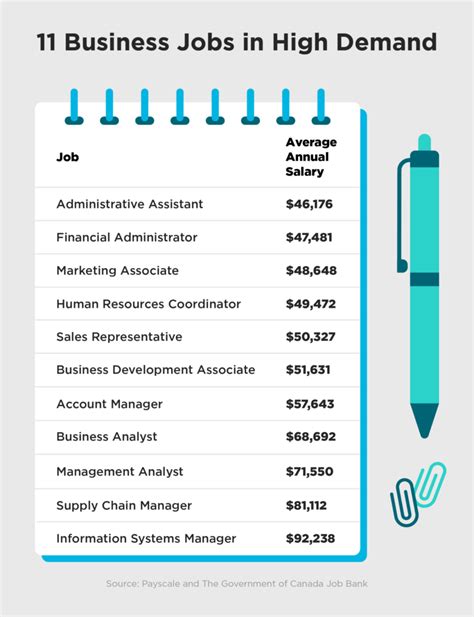In the rapidly evolving landscape of technology, governance plays a crucial role in ensuring that innovations are aligned with organizational goals, regulatory requirements, and societal values. Tech governance careers are emerging as a vital component of this ecosystem, focusing on oversight, guidance, and strategic decision-making. This article explores the top careers in tech governance, their responsibilities, required skills, and the future outlook for these roles.
The Rise of Tech Governance
The tech industry has grown exponentially over the past few decades, transforming the way businesses operate, people interact, and societies function. As technology advances, there is a growing need for professionals who can ensure that these advancements are made responsibly and with consideration for their impact. Tech governance is the process of overseeing and guiding the development and deployment of technology to achieve strategic objectives while minimizing risks and ensuring compliance with regulations.
Top Careers in Tech Governance
Several careers are emerging in the tech governance space, offering exciting opportunities for professionals with a passion for technology, leadership, and strategy. Here are some of the top careers in tech governance:
1. Chief Information Security Officer (CISO)
A CISO is responsible for developing and implementing an organization's overall information security strategy. This includes overseeing the protection of sensitive data, preventing cyber threats, and ensuring compliance with relevant regulations.
Key Responsibilities:
- Develop and implement information security policies and procedures
- Oversee the incident response and disaster recovery processes
- Collaborate with other departments to ensure security awareness and training
- Stay up-to-date with emerging threats and technologies
Required Skills:
- Strong understanding of information security principles and technologies
- Excellent leadership and communication skills
- Ability to work with cross-functional teams
- Relevant certifications (e.g., CISSP, CISM)

2. Chief Data Officer (CDO)
A CDO is responsible for overseeing an organization's data management strategy, ensuring that data is accurate, secure, and accessible. This includes developing data governance policies, managing data quality, and ensuring compliance with data protection regulations.
Key Responsibilities:
- Develop and implement data governance policies and procedures
- Oversee data quality and data management processes
- Collaborate with other departments to ensure data-driven decision-making
- Stay up-to-date with emerging data technologies and trends
Required Skills:
- Strong understanding of data management principles and technologies
- Excellent leadership and communication skills
- Ability to work with cross-functional teams
- Relevant certifications (e.g., CDMP, CDO)

3. Chief Technology Officer (CTO)
A CTO is responsible for overseeing an organization's technology strategy, ensuring that technology aligns with business objectives and is deployed efficiently. This includes developing technology roadmaps, managing technology budgets, and ensuring compliance with technology-related regulations.
Key Responsibilities:
- Develop and implement technology strategies and roadmaps
- Oversee technology budgets and resource allocation
- Collaborate with other departments to ensure technology adoption and utilization
- Stay up-to-date with emerging technologies and trends
Required Skills:
- Strong understanding of technology principles and trends
- Excellent leadership and communication skills
- Ability to work with cross-functional teams
- Relevant certifications (e.g., CTO, ITIL)

4. Compliance Officer
A Compliance Officer is responsible for ensuring that an organization complies with relevant laws, regulations, and standards. This includes developing compliance policies and procedures, conducting risk assessments, and ensuring that employees are aware of and adhere to compliance requirements.
Key Responsibilities:
- Develop and implement compliance policies and procedures
- Conduct risk assessments and identify compliance gaps
- Collaborate with other departments to ensure compliance awareness and training
- Stay up-to-date with emerging regulations and standards
Required Skills:
- Strong understanding of compliance principles and regulations
- Excellent analytical and problem-solving skills
- Ability to work with cross-functional teams
- Relevant certifications (e.g., CCEP, CCO)

5. Risk Management Officer
A Risk Management Officer is responsible for identifying, assessing, and mitigating risks to an organization. This includes developing risk management policies and procedures, conducting risk assessments, and ensuring that risk mitigation strategies are implemented.
Key Responsibilities:
- Develop and implement risk management policies and procedures
- Conduct risk assessments and identify risk mitigation strategies
- Collaborate with other departments to ensure risk awareness and training
- Stay up-to-date with emerging risks and trends
Required Skills:
- Strong understanding of risk management principles and methodologies
- Excellent analytical and problem-solving skills
- Ability to work with cross-functional teams
- Relevant certifications (e.g., CRM, FRM)

Future Outlook for Tech Governance Careers
The demand for tech governance professionals is expected to grow significantly in the coming years, driven by the increasing need for organizations to manage technology risks, ensure compliance, and protect sensitive data. According to the Bureau of Labor Statistics, employment of information security analysts, including CISOs, is projected to grow 31% from 2020 to 2030, much faster than the average for all occupations.
Conclusion
Tech governance careers offer exciting opportunities for professionals with a passion for technology, leadership, and strategy. As the tech industry continues to evolve, the demand for skilled tech governance professionals will only increase. By understanding the top careers in tech governance, their responsibilities, and required skills, professionals can position themselves for success in this rapidly growing field.
Gallery of Tech Governance Careers






FAQ Section
What is tech governance?
+Tech governance is the process of overseeing and guiding the development and deployment of technology to achieve strategic objectives while minimizing risks and ensuring compliance with regulations.
What are the top careers in tech governance?
+The top careers in tech governance include Chief Information Security Officer (CISO), Chief Data Officer (CDO), Chief Technology Officer (CTO), Compliance Officer, and Risk Management Officer.
What skills are required for a career in tech governance?
+Skills required for a career in tech governance include strong understanding of technology principles and trends, excellent leadership and communication skills, ability to work with cross-functional teams, and relevant certifications (e.g., CISSP, CISM, CDMP, CDO).
